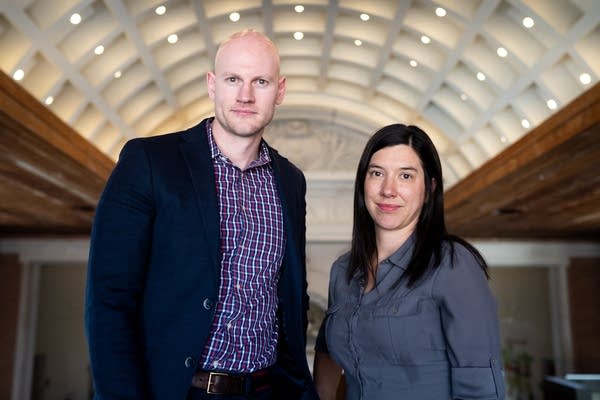Minnesota-made tool tracks the how and why behind mass shootings
All but 2 percent of mass shooters were men, according to national database

Researchers James Densley and Jillian Peterson stand for a portrait at Hamline University in St. Paul on March 19, 2019. Densey and Peterson are co-founders of The Violence Project, a research and training organization with the mission of reducing violence in society.
Evan Frost | MPR News file
Go Deeper.
Create an account or log in to save stories.
Like this?
Thanks for liking this story! We have added it to a list of your favorite stories.


